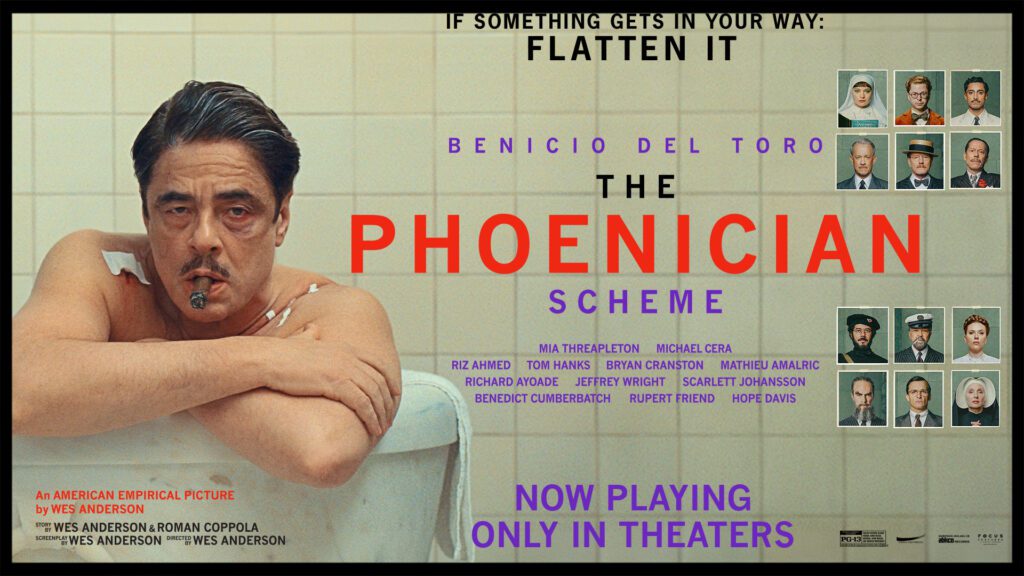To purchase a ticket to the June 6th 7pm premiere event, please visit: https://www.artandculturecenter.org/
“The Phoenician Scheme” stars Benicio del Toro as Zsa-zsa Korda, a wealthy tycoon whose countless questionable international dealings have made him the target of ceaseless assassination attempts. When the latest explosion blows up his airplane, forcing him to crash-land in a cornfield and nudge some of his organs back in his stomach, he has a vision of the afterlife and doesn’t know what to make of it. But he knows something must be done so he summons his only daughter, Liesl (Mia Threapleton), and makes her his sole heir. There’s just one problem: She’s a nun. Well, almost a nun anyway.
Korda has a scheme, a “Phoenician Scheme” if you will, and it requires him to travel the world meeting old associates and estranged family members, some of whom may want to kill him. Never mind what the actual scheme is. It’s complicated and corrupt and requires many investors, and that’s all you really need to know. Liesl, torn by Korda’s offer, tags along and finds herself increasingly intrigued by his lifestyle. Korda, in turn, finds himself increasingly thoughtful, questioning his own life and plans.

Korda may be on a path to find God, but Liesl is not on a path to damnation. They don’t cross paths and trade fates. No, in “The Phoenician Scheme” life is a lot more complicated than “God good, money bad.” The whims of the wealthy are mocked, ruthlessly, recalling the wave of 1930s comedies and musicals where rich people were treated like pampered little children, or soulless husks waiting to be filled with joy again. Religion is not mocked but the dogma is considered optional. Liesl finds herself eager to whip out a bejeweled gold dagger — a gift from her father — whenever the slightest threat arises, striking a whimsical, contradictory image. A fightin’ nun with a taste for the finer things.
“The Phoenician Scheme” is a serious work of art that plays like a boondoggle. Anderson could be accused of copping out of making a decision to choose between God and, you know, owning stuff, but I think he finds that there’s a bit of spirituality in all of us that can’t be ignored, and a desire to relish in life’s little indulgences as well, and that the two aren’t mutually exclusive. The scheme, it seems, was finding a good and worthy life in between the extremes we tend to yearn for. Anderson’s diorama, in its details, is a place we all would be lucky to find ourselves. A little silly, a little profound, a little lovely, a little dingy. A vast mosaic revealed through countless individual tiles.


